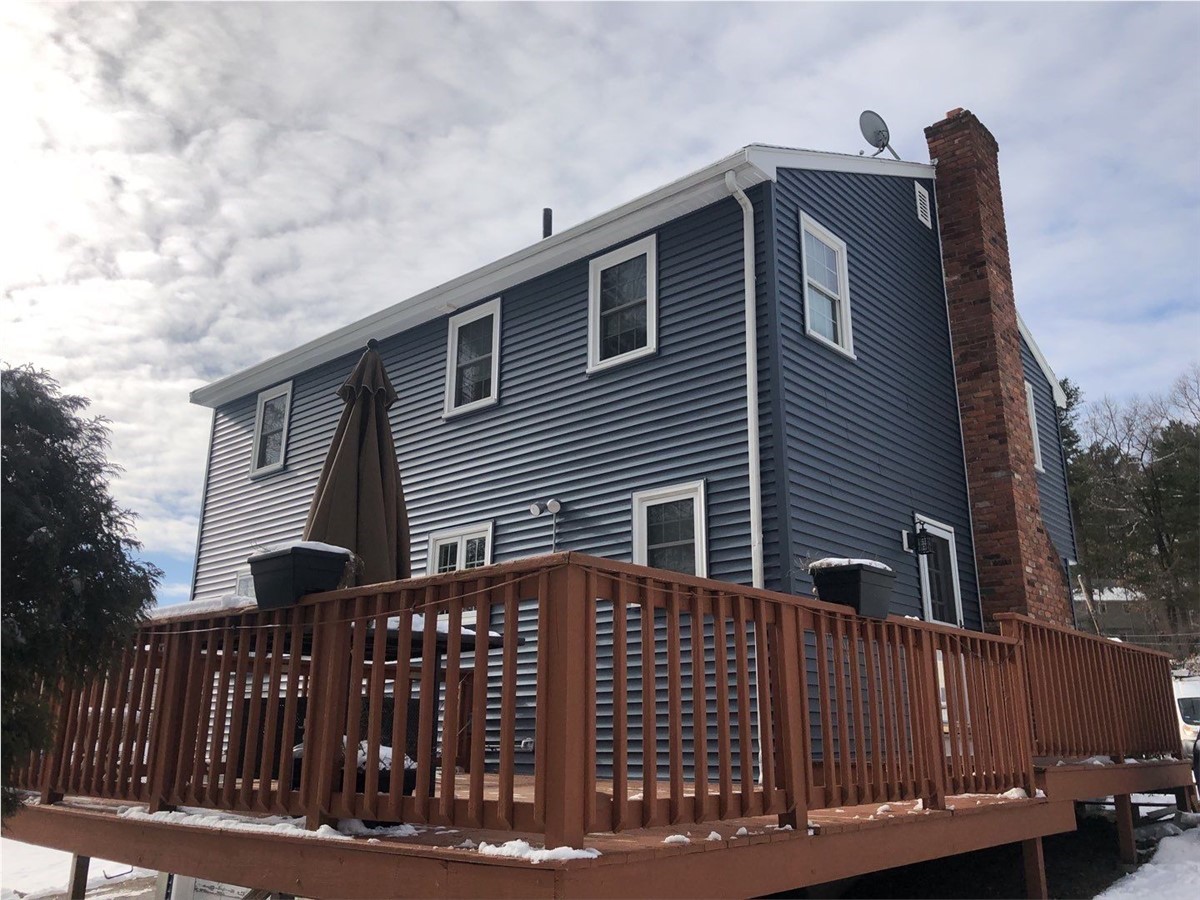
At Red Dog's Roofing, we know that a deck is more than just an outdoor space—it's where memories are made. Whether you're hosting a family barbecue or soaking up the sun, your choice of decking material can significantly impact your deck's performance, maintenance, and overall value. Let's dive into the differences between composite decking and traditional wood to help you make the best choice for your Massachusetts home.
- Durability and Longevity
Composite Decking
Made from a blend of wood fibers and plastics, composite decking is designed to stand up to the elements. It's resistant to rot, decay, and insect damage. With a lifespan of 25-30 years, it's a long-term investment that maintains its appearance and integrity with minimal upkeep.
Wood Decking
While traditional wood decks have a natural charm, they are susceptible to weathering, rot, and insect damage. Regular maintenance including staining, sealing, and repairs is necessary to keep wood decks in good shape. Typically, a well-maintained wood deck can last 10-15 years. - Maintenance and Upkeep
Composite Decking
One of the biggest selling points of composite decking is its low maintenance. It doesn't require staining, sealing, or sanding. A simple cleaning with soap and water is usually enough to keep it looking great.
Wood Decking
Wood decks demand more upkeep. To preserve their look and longevity, you'll need to stain and seal them every couple of years. Without proper maintenance, wood can splinter, warp, or rot. - Aesthetics and Customization
Composite Decking
Modern composite decking comes in a variety of colors and finishes, some of which closely mimic the look of real wood. The consistent color and texture make for a sleek, uniform appearance.
Wood Decking
Wood's natural beauty is hard to beat. Each board is unique, offering a variety of grain patterns and shades. However, wood's appearance can change over time due to sun exposure and weathering. - Environmental Impact
Composite Decking
Most composite boards are made from recycled materials, making them an eco-friendly choice. They also don't require the use of harmful chemicals for maintenance.
Wood Decking
While wood is a natural and renewable resource, it requires regular treatment with stains and sealants that can contain harmful chemicals. However, sustainably sourced wood is available. - Cost Consideration
Composite Decking
Initially, composite decking is more expensive than wood. However, the lower maintenance costs over time can make it a more cost-effective choice in the long run.
Wood Decking
Wood is generally less expensive upfront, but the ongoing maintenance costs can add up. If not properly maintained, you might also face the cost of repairs or early replacement.
At Red Dog's Roofing, we understand that choosing the right decking material is a big decision. Whether you value the longevity and ease of composite decking or the natural beauty and initial cost savings of wood, we're here to help you build the deck of your dreams. Contact us today to explore your options and start enjoying your outdoor space to the fullest.
Subscribe to Red Dog's Roofing's Blog





Comments